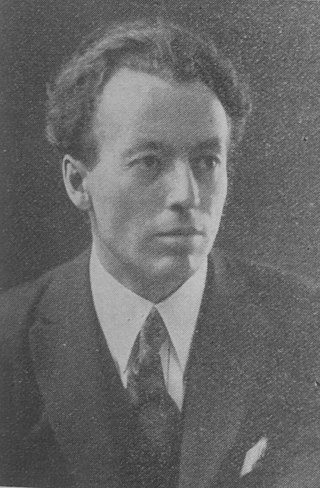Top Qs
Timeline
Chat
Perspective
Maurice Browne
American poet From Wikipedia, the free encyclopedia
Remove ads
Maurice Browne (12 February 1881 – 21 January 1955) was a man of the theatre in the United States and the United Kingdom. A poet, actor and theatre director, he has been credited, along with his then-wife Ellen Van Volkenburg, as the founder of the Little Theatre Movement in America through his work with the Chicago Little Theatre.[1]
Remove ads
Early life
He was born in Reading, England, the son of the Rev. Frederick Herbert Browne, a graduate of Wadham College, Oxford and head of Ipswich School, and his wife Frances Anne Neligan, daughter of the Rev. Maurice Neligan D.D.[2][3][4]
He was educated at Temple Grove School and Winchester College.[5] In 1894 his father committed suicide, leaving four children. Frances moved to Eastbourne to run a school, and Maurice moved to Eastbourne College. From there he won a scholarship to Peterhouse, Cambridge, where he matriculated in Michaelmas Term 1900, having first joined up to the British Army and spent time in South Africa during the Second Anglo-Boer War. He graduated B.A. in 1903.[6][7]
Remove ads
Career
Summarize
Perspective
At Cambridge Browne struck up a friendship with Louis Wilkinson.[8] He belonged to a poetic coterie with Harold Monro who became a close friend, Guy Noel Pocock and Herman Leonard Pass.[9][10][11] He wrote no more poetry once he graduated.[2] In 1904 Browne was teaching at St. Paul's School, Darjeeling.[7]
On his return to London, Browne became involved in printing and publishing. As a small press publisher he concentrated on verse.[7][12] He ran the Samurai Press (active 1907–1909) with Harold Monro, who had married his sister Dorothy in 1901 (they divorced 1916); the name referenced A Modern Utopia by H. G. Wells.[13]

Meeting Ellen Van Volkenburg at Florence when travelling in Italy, Browne went to Chicago to marry her in 1912. That year they adapted a space in the Fine Arts Building to create the Chicago Little Theatre.[14] In 1921, Browne and Volkenburg acted in the performance of George Bernard Shaw's The Philanderer at the Cornish School playhouse.[15] They ran the theatre for five years.[16] They went on to found the department of drama at the Cornish School in Seattle in 1918.[17]
At the opening night of the Theatre of the Golden Bough, Volkenburg had the title-role in Browne's play, The Mother of Gregory, which played June 6, 7, and 14, 1924.[18]
Browne's greatest triumph came in 1929 when he produced Journey's End, by R. C. Sherriff in London.[19] The production was also highly profitable for him. He was able to invest in stakes in the Globe Theatre and Queen's Theatre in London's West End.[20]
Remove ads
Death
References
Further reading
External links
Wikiwand - on
Seamless Wikipedia browsing. On steroids.
Remove ads

